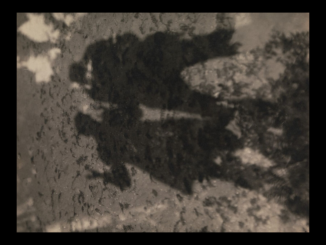
I love it when they call me that. When they call me what they want to call me without ever hearing me answer the question that they probably thought didn’t matter because they had already set their minds to calling me what they had already set their hearts to calling me.
“What’s your name?”
I don’t say José. My name isn’t José. But on the occasions I have been called José, this technicality falls into the blender of somebody’s mind. More times than I’ve counted, someone has said José in the face of the name I actually did give them with something like “José, was it?” or “Nice to meet you, José” or “José, I got it. I got it.”
Though let me digress from the preface: it’s no big deal that someone gets my name wrong. No one’s getting fined. I’m no one to scold or school anyone publicly. And there isn’t any adjudicating what isn’t murder in the first degree.
Sure, it bothers me that the name I had said all those times didn’t matter. Not terribly, of course. But one does start to think after a while that the name one does offer was really just waiting for an excuse to disappear into puffs of white smoke. Like, was it ever really your name if no one said it. Or like, did the name ever really make a sound if it collapsed in the forest by itself without anyone there to call it by its name.
It’s a weird feeling. Like names don’t matter. Or that they matter insomuch as whoever controls them, whoever gets them right or wrong, gets to dictate how much the name can matter and to whom it matters. It’s a feeling that has returned each time someone who was about to get my name wrong started to introduce me to the person beside them before ever learning how to introduce me at all.
A long time ago I learned how to get ahead of José. In the third grade. In a moment that taught me I’d probably have to be getting ahead of José my whole life.
My third grade teacher had called me to her desk to return my graded biography report. She said I’d done well and then digressed into asking this or that confusing question about my last name. I remember shaking my head. I remember standing at her breath and feeling a little lost. None of my silence did anything to activate the dismiss-this-child trigger usually invoked by a child’s lost eyes. After a moment of my no-answers, she smiled that polite smile of teachers overstepping a kind of ignorance. I know that smile well. I’m a professional teacher now, and I have practiced that smile aplenty. And in the third grade, I took that smile as my cue and so I started to leave. However, when I did, suddenly this other personality reared its face for the first time, and from a mouth that had an official attendance sheet from which she read every morning.
“Great job, José.”
I turned around like What the fuck? I mouthed it so nobody heard me. It was a February morning. It was cold outside, and my mother had sent me to school in a sweater spun in Ecuadorian wool. Llamas designed across the chest. A getup that screamed immigrant cheese. And the classroom was too warm in that wool. The room wasn’t comfortable and it got even more uncomfortable after I returned to my seat and felt the lacquered wood of the desk chair press its coolness through the denim and onto my butt cheeks.
Discomfort, I learned, makes everything uncomfortable.
Second row, fourth chair back and with no one behind me or to my right. Questions spun across my face. No one noticed, of course, because confusion was my perpetual face in the third grade. It was almost March, and the lady that should have known my name by then hadn’t internalized it enough to at least pretend to know how not to suggest another name.
José appeared later in grade school, too, when I visited a friend’s house and he introduced me to his father. “José, was it?” No, I said. “Oh, okay,” he said. The old man then returned to reading his newspaper. Hunched over the kitchen table. Little jagged white hairs like jutted above his head like they were trying to reach for the sun. Like they had just gotten tired of helping the man process the things he’d heard.
It happened again in high school. Some kid who thought he was cool was all like “José, man” as he walked up the steps and I walked down. He accompanied his nod with a handshake and a pat on the back so it was all good. It was like a “Yeah, man,” like a “We good, bro.” Like he wanted to acknowledge me by acknowledging me publicly as somebody he got and that got him. So, of course, I took it kindly. And literally in stride to next period.
But the problem was that he was literally acknowledging something else. A version of me, maybe, but definitely not me. Of course, in that moment, I wasn’t mad. I still answered him back like “Yeah, man.” Handshake and all. I’m not going to fault someone for at least trying to acknowledge me. I’ve never been one to want many friends. I’ve never been good at keeping too many egos straight. But I’ve also never been one to fashion having enemies. And you make enemies quick by walking past someone who wants to acknowledge who they think you are without acknowledging them back. Acknowledgements, I’ve learned, are just somebody’s wanting someone else to acknowledge them back in kind.
I can’t say much about my college experience. Didn’t have many meetings with professors. Always had friends of all pasts and colors who got it. So it was mostly good if you exclude just the one moment I’m sitting in a part-time job interview for the financial aid office and my interviewer in the middle of the interview gets all “Do you want some water, José? I’m getting up for one myself,” and I get all, “Um, sure,” and then she gets terribly apologetic about getting my name wrong. She must have glanced at my application as she stood up and wanted to correct herself. She was kind about it. They’re always all so very kind about it.
Kindness, I have learned, is something I don’t take kindly to when it’s overdone.
But most of José’s fun happened when I started working full time and spending time with real adults. An adult, I learned, isn’t an adult until he or she has plenty of shit to say about a lot of shit. And bad shit, too. Like “Would you look at that guy?” kind of shit. Like “I’m totally gonna fuck up that guy’s day” kind of shit. That, I learned quickly, is what real adults are made of. I wanted no part of being a real adult, of course, but in my 20s, I was just happy to beg for a job. And I had school loans to repay. So go ahead, I said. Sign me up.
The first professional Josés arrived during my first job out of college. My supervisor got all faux-proud of me during my first days on the job and he introduced me to other employees by getting all “Hey, Maria. Meet José,” and “Hey, Joey. This is José,” and “Hey, come here, José. I want you to meet Donny.”
My boss caught his mistake eventually. A few days in. Though I always got the sense, by these side glances, that maybe he realized something wasn’t right. Like right after being wrong he thought Wait a sec, that’s not his name and I’m pretty sure I’m wrong but he isn’t correcting me so whatever. And I didn’t correct him. Not once. After each day, I chalked the silence up to first job jitters. Feeling the impostor syndrome and whatnot. Or maybe it was that I was just too weak about the whole thing. Like a name pushover and then afterward an apologist for other people’s mistakes. Or maybe it was that I felt like the mistake was mine. Like maybe I didn’t say my name loud enough or that my name was just too plain. Like I was internalizing other people’s carelessness and crudeness and stupidity because why shouldn’t they be careless and crude and stupid. Maybe my name wasn’t much at all. Or maybe I wasn’t doing enough to assume a name that should have mattered. A voice that should have bestowed mattering upon a name. In any case, José came up infrequently after those first days. Mostly by honest mistake but also once or twice when I fucked something up. Like José could also be a pejorative. Its own kind of curse.
In my second major job out of college, I was also a beggar. What I thought would be a year before I moved onto something that paid a living wage became three years real fast. And all that time mostly just trying to keep up with payments for a car I had to buy just to be able to get to my first job.
Company people at the second place were eclectic by design. All pasts. All colors. But when somebody in a board room meeting who, and I’m not judging, was an asshole and got all José on me and then recognized his mistake but decided anyway to continue on with José because he found himself increasingly amused after each time he said it, I wanted to thwap him in the face with the binder of files in my hand. In that instant, José out of that guy’s mouth altered the landscape of all remaining Josés. And the guy repeated José a couple more times, too. Once more and my own supervisor felt like she needed to get in on the no-joke.
Certainly, I had no taste for the guy who started it. A guy who with his money probably still has plenty people to eat up his no-jokes. And I didn’t care much for the moment. I can forget a taste. Shit, after all, gets flushed. But I was stuck with José, and I had suddenly grown horribly impatient with myself for putting up with the mistake. From then on, the whole thing felt like a joke on me and like I wouldn’t be allowed to laugh with it anymore.
These weren’t the only times José appeared, of course. There were plenty others. And they all had a sum baggage that probably reconceived addition into multiplication. Like at some point, these things stopped adding up and started springing exponents. Like all those years of errors and bad judgment reshaped how I recognized my own name. The shapes it could take. Like my name was now a manipulative thing. Like it wasn’t just that someone else could mold it choppy but that I could, too, by the way I justified, recognized, and responded to someone’s mistake. By the way that I accepted it, internalized it, normalized it.
Probably all this led to the easy decision to change my last name to match my stepdad’s. Sure, it was important to honor him. But I took the process of signing court forms and standing before a judge to confirm I wasn’t evading past debts or criminal charges and then notarizing the officialdom like it was no big deal. Like it was just a name. Something on a page I could delete and retype. Something I could revise. Like an essay I could mess with or repurpose. After all, other people had already reshaped my name aplenty. So why not me. Why not start controlling the mistake myself. Get so far ahead of it that I wouldn’t have to apologize for it anyone’s mistaken version of it ever again.
José, as one would expect from epiphanies in an essay, only happened a few times after the name change. The most prominent one being a guy at a small company I worked for who wanted to clarify what to call me since he recognized my middle name on the new employee company email. Having just read the email, like just the split second before, he said hello to me in José but then he immediately corrected himself and not overly apologetic or falsely either. Like he felt terrible about it. Concerned about the way he was being perceived. Like he wanted me to know that professional correction mattered to him. And he repeated my correct name, too. Juan. Juaaaaan. Just to make sure that I knew that he knew that he had recognized that he had almost compromised his credibility.
Work is politics, I learned. And when you have to work with someone and not beneath them, people really don’t like getting things wrong. Much less your name.
Juan Carlos Reyes has published the novella A Summer’s Lynching (Quarterly West) and the fiction chapbook Elements of a Bystander (Arcadia Press). His stories, poems and essays have appeared in Waccamaw Journal, Florida Review, and Hawai’i Review, among others. He was the recipient of a Washington State Artist Trust Fiction Storyteller Grant in 2018, and he is currently an Assistant Professor of creative writing at Seattle University. He also serves as the chief editor of Big Fiction magazine, and you can find him online at jcreyes.net
Featured image: Photograph by Chris Liverani on Unsplash.




1 Trackback / Pingback
Comments are closed.